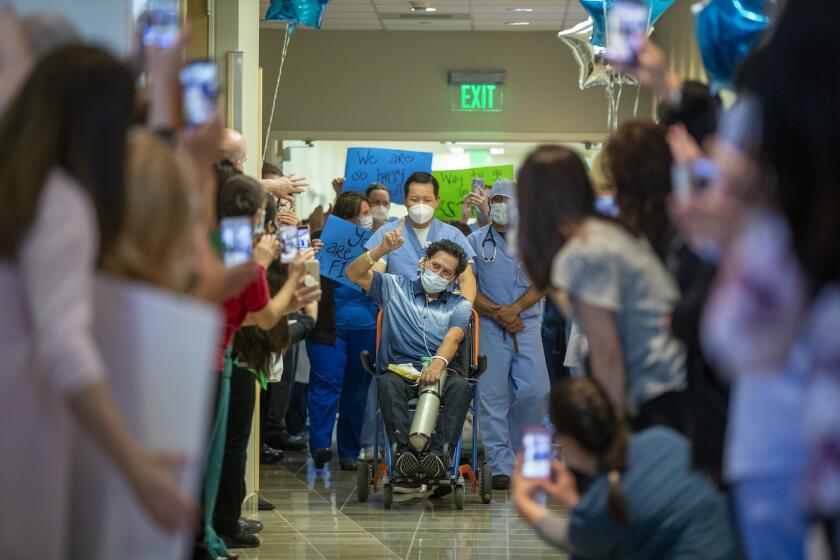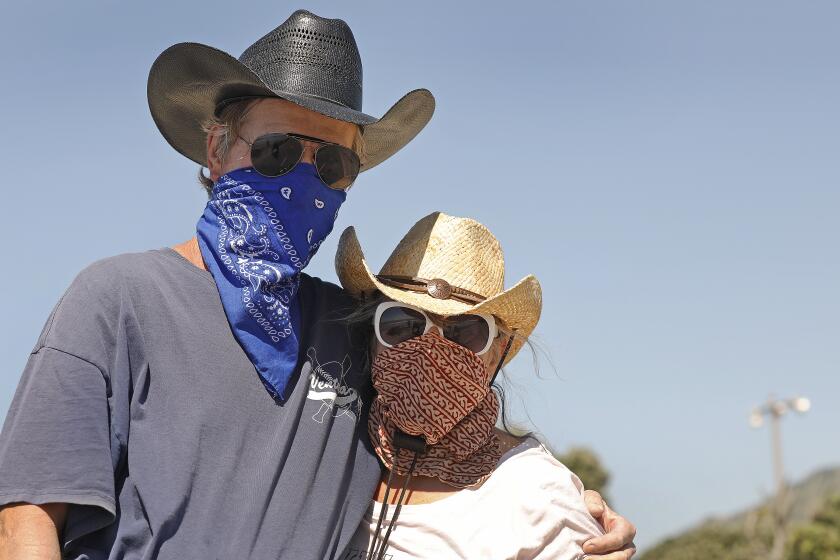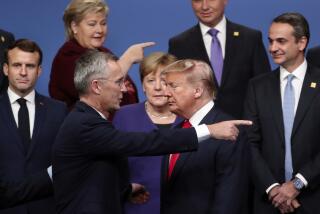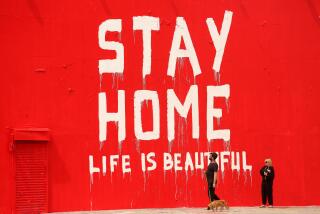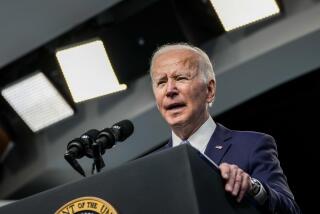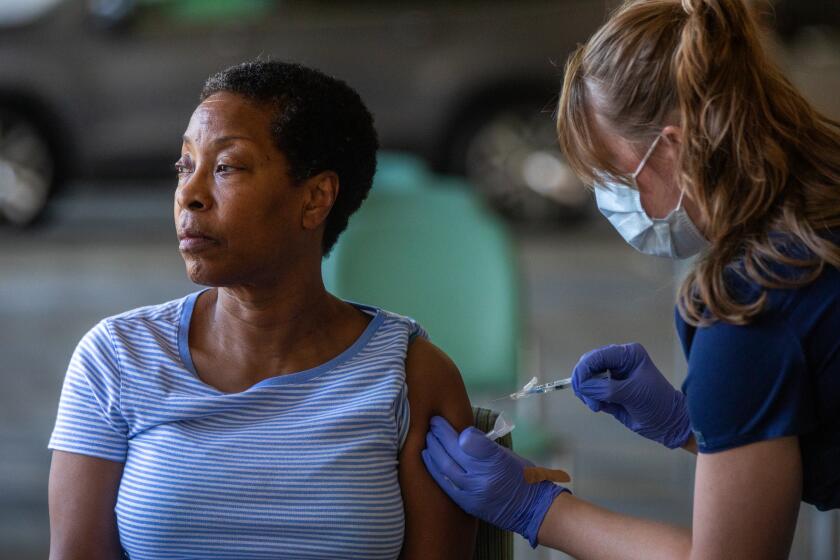Global response to coronavirus stymied by lack of leadership from the U.S. and Trump
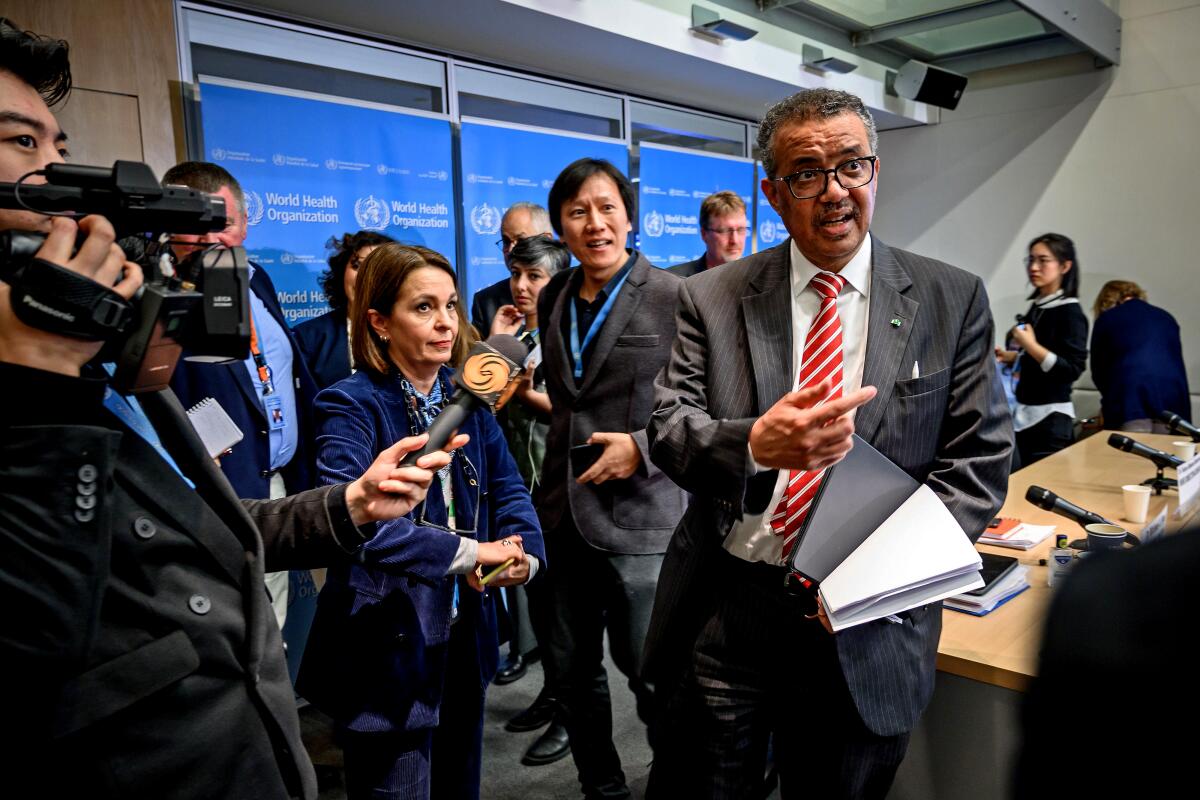
President Trump’s America-first policies, contempt for multilateral organizations and testy relationships with other world leaders are contributing to what many see as a surprising lack of global unity and coordination in combating the COVID-19 pandemic.
It is usually the U.S. president who would lead such an effort in times of global emergency. But Trump’s moves to weaken Western post-World War II alliances such as NATO, his harsh treatment of traditional American allies and his slow response to the coronavirus threat have prevented close cooperation even among the United States’ usual partners, including Europe and Canada.
Taking their cue from Trump, other nations have similarly turned inward to fight a health threat that has defied borders. Far from rising to a shared cause, most countries are battling on their own. If anything, the pandemic has fueled nationalist sentiments — including among hawks inside the Trump administration — and reignited international rivalries.
“What we’re seeing is the biggest global crisis of our lifetimes with truly no global response,” said Ian Bremmer, president of the international risk-assessment Eurasia Group. “Trump’s orientation — his unilateralism, his transactionalism and his challenging personal relations with so many of our key allies — have made worse what was going to be a severe structural crisis irrespective of Trump.”
In past crises, such as the economic crash of 2008-09 and the 2014 Ebola outbreak, the International Monetary Fund, World Bank, World Health Organization and other international institutions joined with U.S. officials and leaders from around the world to fight back and lead the recovery effort. Central banks from the wealthiest 20 countries produced plans in 2008 that stimulated the economy and stabilized institutions, while medical teams from dozens of countries rushed to West Africa in 2014 to battle a deadly outbreak of a feared disease.
These are some of the unusual new scenes across the Southland during the coronavirus outbreak.
There were key differences, of course. The economic crash was limited to financial and economic sectors. Ebola was a more contained contagion. The scale of the new coronavirus is far broader, hitting numerous countries in swift succession, with deaths mounting, economies paralyzed and the impact spreading through every sector of society. Some governments may feel too overwhelmed with cases to join a global effort, even if there were one.
For Trump and the U.S., it’s a missed opportunity to reassert American global leadership and goodwill at a time when that status is under growing threat from China and others, experts say. And, rather than call for global unity, Trump frequently portrays the battle against the virus as an international competition, boasting that the U.S. is doing better than other nations at testing and containing deaths, though both claims are disputed.
“The administration has stuck to its worst penchants not to follow expert advice, treated this as a zero-sum game, and missed opportunities to at least look like it was getting out there in front and saying: ‘We’ll be there to help as much as we can,’” said Daniel Nexon, a Georgetown University government professor and author of “Exit From Hegemony,” adding that that is what every president since Ronald Reagan has done in times of disaster.
William Burns, former deputy secretary of State and president of the Carnegie Endowment for International Peace, said past American leadership established strong partnerships abroad that created “an invaluable force multiplier” — using a military reference to suggest how a single action can reverberate and produce numerous additional benefits.
“In this one, the Trump White House’s blend of arrogance and ineptitude, against the backdrop of more than three years of diplomatic disarmament, is a force divider,” he said in an email.
The latest updates from our reporters in California and around the world.
In his almost-daily briefings lately, Trump has defended his response to the deadly pandemic and insisted that the U.S. is working to help other nations by manufacturing needed medical supplies and working on a vaccine. But he’s made no apologies about focusing on the U.S., saying protecting Americans is his foremost priority.
Trump has repeatedly cited his moves to isolate from the rest of the world — including his Jan. 31 order to restrict some travel from China, and later from Europe, Canada and Mexico — as critical to stopping the spread of the virus in the U.S.
White House officials insist Trump has maintained contact with other world leaders in dealing with the crisis, though little documentation of such conversations has been released. Trump was planning a teleconference with G-7 leaders on Thursday, and his staff has reached out to economic, health and science officials in numerous countries, aides say.
“President Trump’s leadership and concrete actions have spurred the international community to take the steps necessary to save lives,” White House spokesman Judd Deere said. “By any honest measure, the scope and reach of President Trump’s global leadership has been historic.”
Trump supporters say his approach is working. “Kudos for the president,” said James Carafano, a fellow at the conservative Heritage Foundation. Carafano and others say Trump has dealt with other world leaders behind the scenes.
“He hasn’t personally chosen to highlight his [global] role,” Carafano said. He added that Trump’s angry decision Tuesday to cancel U.S. funding for the World Health Organization “put it on notice for its poor response and failures, and I think that’s global leadership.”
Critics, however, say the Trump administration has undercut the traditional venues of collective action. Last month, as it became clear the world was headed for recession, the Group of Seven — composed of the top economies — failed to reach agreement on a joint statement due to the Trump administration’s insistence on referring to COVID-19 as the “Wuhan virus” as a way to emphasize blame on China.
By suspending U.S. funding for the WHO, Trump singled out the U.N.’s global health body for special blame. He accused the organization of initially underestimating the threat from the disease — as Trump did — and of having a perceived bias in favor of China. U.S. funding constitutes roughly 17% of the WHO’s budget.
The WHO “got it wrong,” Trump said. “I think they have to get their priorities right, and their priorities are that everybody has to be treated properly — every country. And it doesn’t seem that way, does it? ... It’s very unfair.”
He accused the organization and its director-general, Tedros Adhanom Ghebreyesus, of being “China-centric” and overly deferential to Beijing, allowing the nation to hide the extent of the outbreak in its early weeks.
Tedros responded by saying his organization was “color blind” and had done its best to keep the world abreast of what was initially the outbreak of a mysterious respiratory inflammation.
Those pushing for a global response to the pandemic are sounding alarms. A vocally frustrated U.N. Secretary-General Antonio Guterres has seen his calls for more global coordination largely ignored during the health crisis — including a worldwide cease-fire in regional conflicts, an easing of sanctions against countries besieged by the pandemic like Iran and Venezuela, and a multitrillion-dollar emergency humanitarian aid fund.
“The relationship between the biggest powers has never been as dysfunctional,” Guterres said. “International cooperation has never been at this low level. ... I know many think they can do it by themselves. COVID-19 is showing dramatically, either we ... are together, or we can be defeated.”
Pope Francis echoed that sentiment in an unusually political Easter Sunday address, decrying “functional hypocrisy,” indifference and self-centeredness at the highest level of governments.
Gordon Brown, prime minister of Britain during the 2008 recession, said there had been “too much America first, India first, China first” and that countries had to acknowledge they’re interdependent “whether we like it or not.”
“We cannot say we are doing everything it takes [to counter the pandemic] unless we all come together to obtain a global response,” he said in a telephone interview from London. “This is our moment of truth. ... It is no longer a debate between globalism and nationalism.”
Brown is one of more than 100 former world leaders who have written to the G-20 to call for an $8-billion plan to develop a vaccine, expand universal capacity to detect, test and treat the disease and shore up the economy.
To be sure, international fractures predated the pandemic. Trump has built his political career in part on skepticism about international pacts. A rise in right-wing nationalism was already occurring in many countries.
The coronavirus “has shone a spotlight on what was already happening,” said Georgetown’s Nexon. “Trump is both symptom and accelerant.”
Although the European Union did finally agree last week on a stimulus package to help members of the 27-country bloc, strains that have plagued it for several years reemerged and threatened to drive a deeper wedge.
Germany, the largest economy, which has had relative low contagion, was reluctant to go to the aid of Italy or Spain, where infections and deaths were soaring. Anti-EU sentiment, already festering in some countries, grew.
Smaller countries that might have turned once to the United States in a crisis have looked instead to China or Russia, two longtime U.S. rivals who are making the most of the U.S. vacuum by sending supplies around the world. Even China, whose initial secrecy fueled the global outbreak, is hoping to gain international praise for offering assistance to other nations, much to the frustration of Trump’s State Department.
And a number of governments appear to be exploiting the crisis to crack down on dissent at home and consolidate power, as in the case of Hungarian President Viktor Orban and Russia’s Vladimir Putin.
Asked about concerns that such leaders are taking advantage, the administration again seemed to abdicate its customary leadership role.
“In the time of crisis, we turn to each government to do what they think is the best for their communities and [to be] able to ensure safety and security,” said Julie Chung, a principal deputy assistant secretary of State, in a briefing with reporters. “So I defer to each of the separate governments on what individual measures they are taking.”
More to Read
Get the L.A. Times Politics newsletter
Deeply reported insights into legislation, politics and policy from Sacramento, Washington and beyond. In your inbox three times per week.
You may occasionally receive promotional content from the Los Angeles Times.
